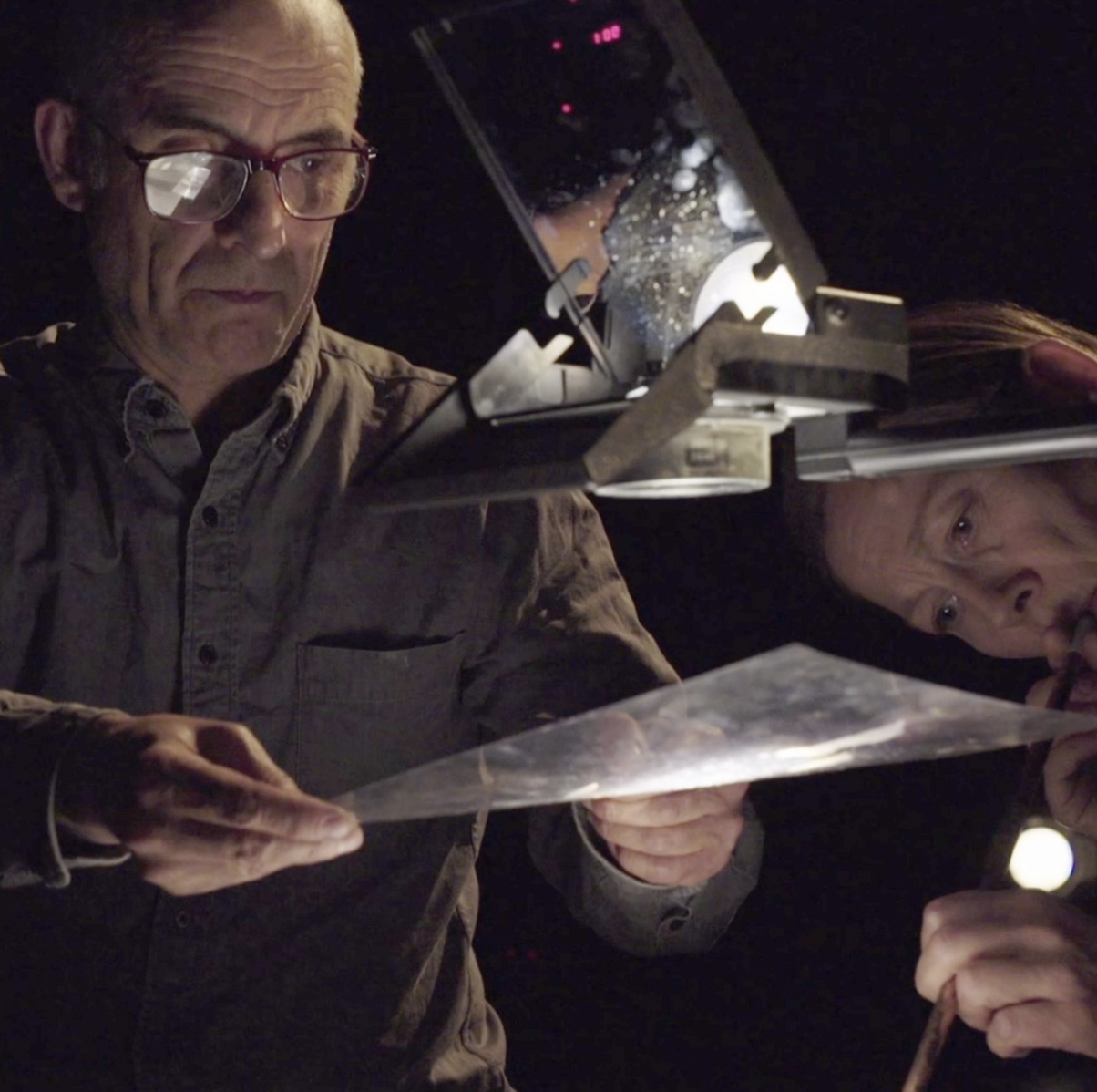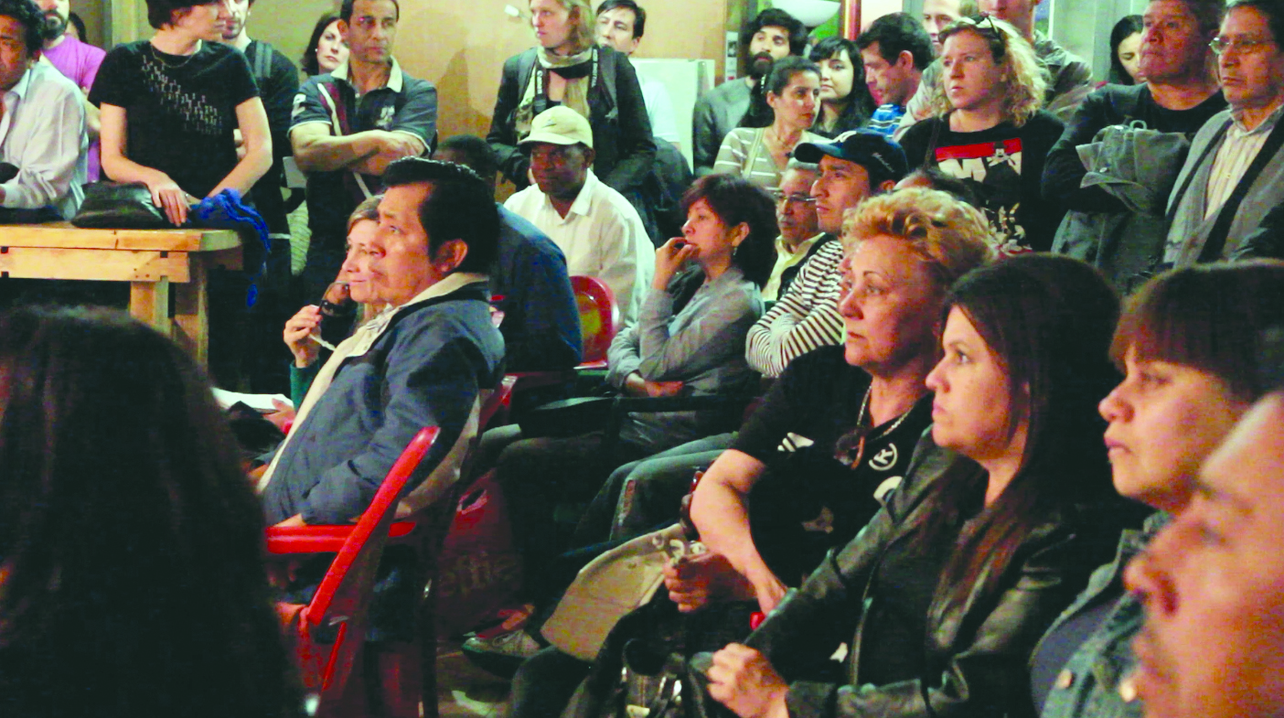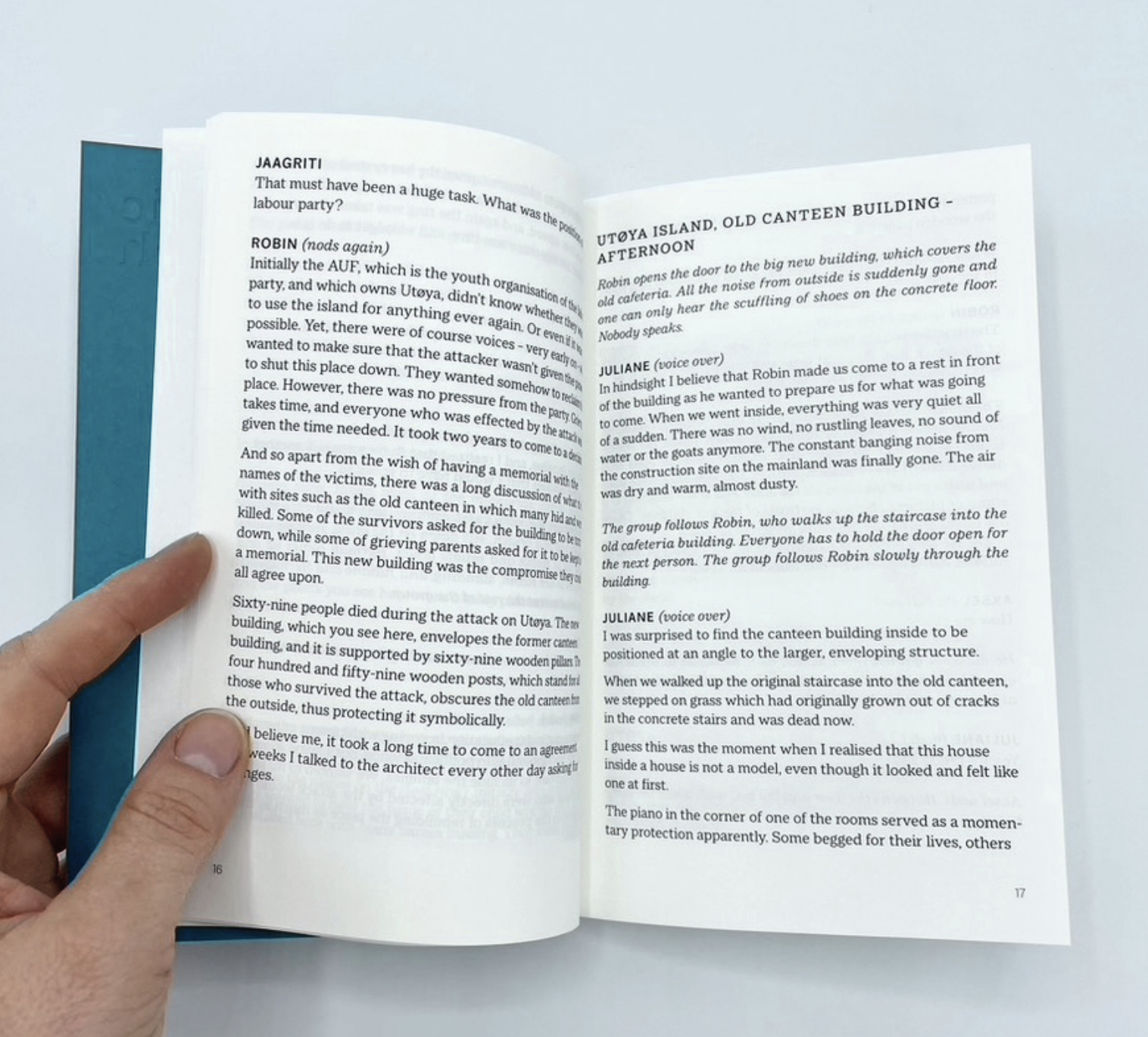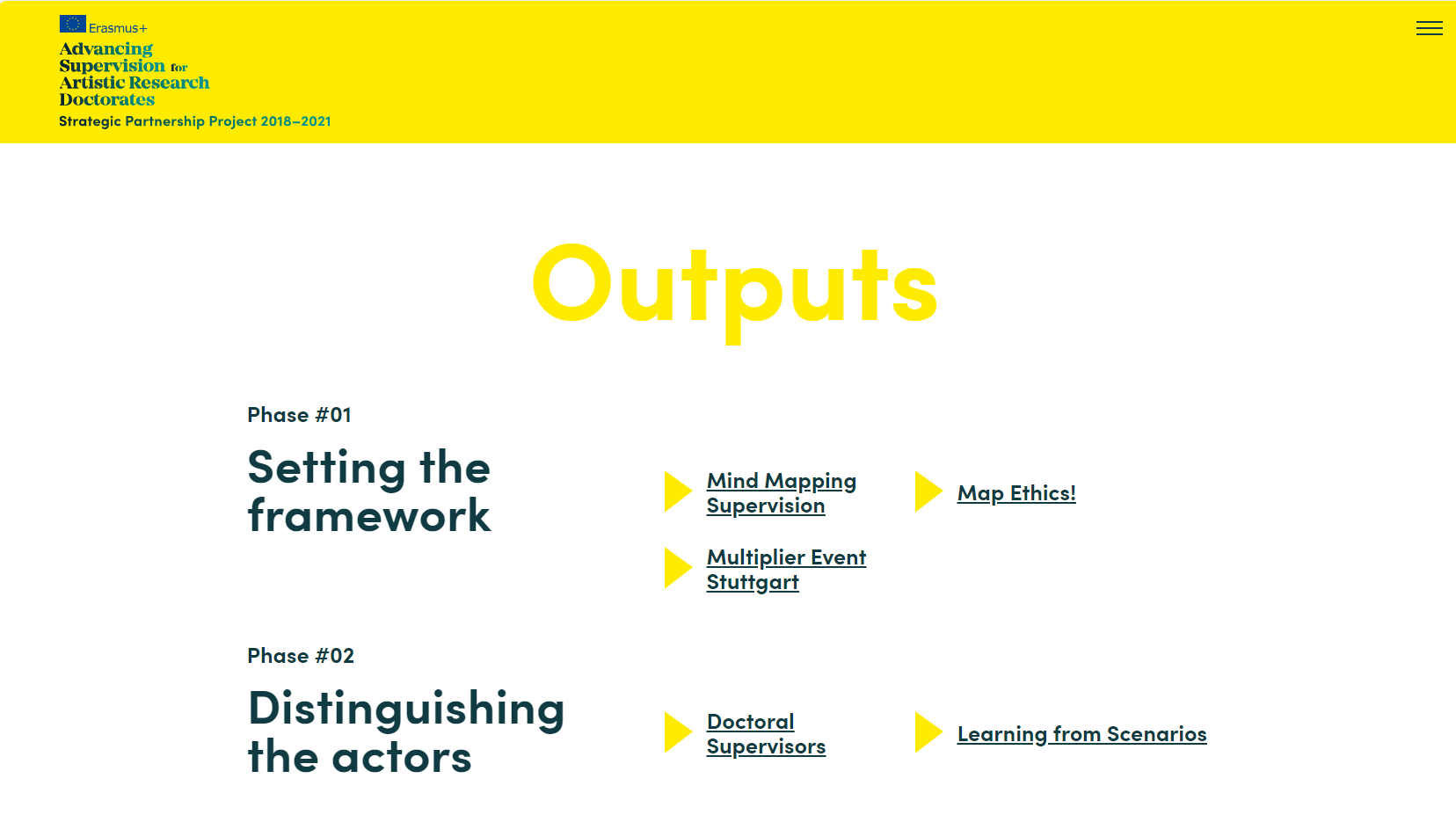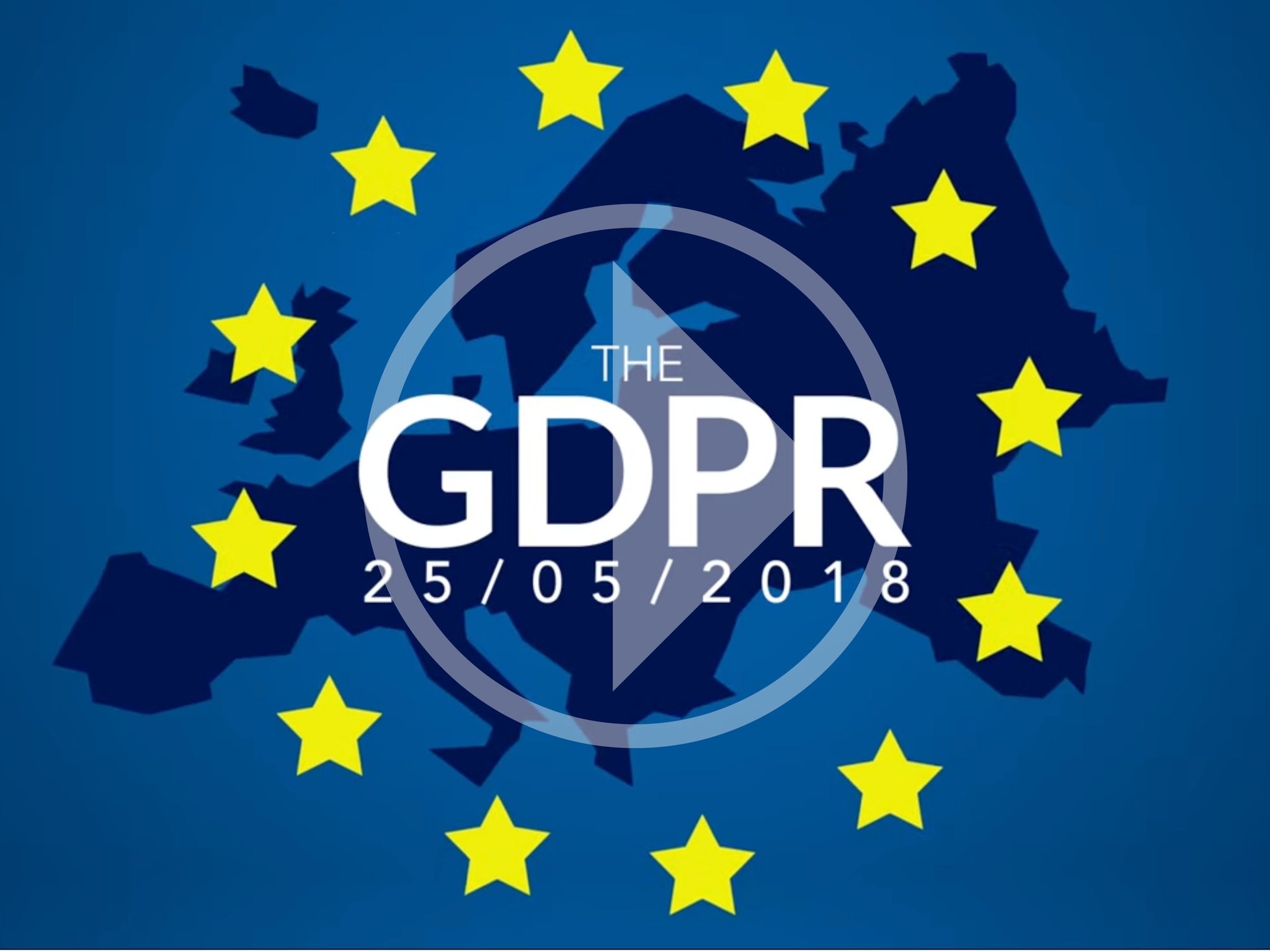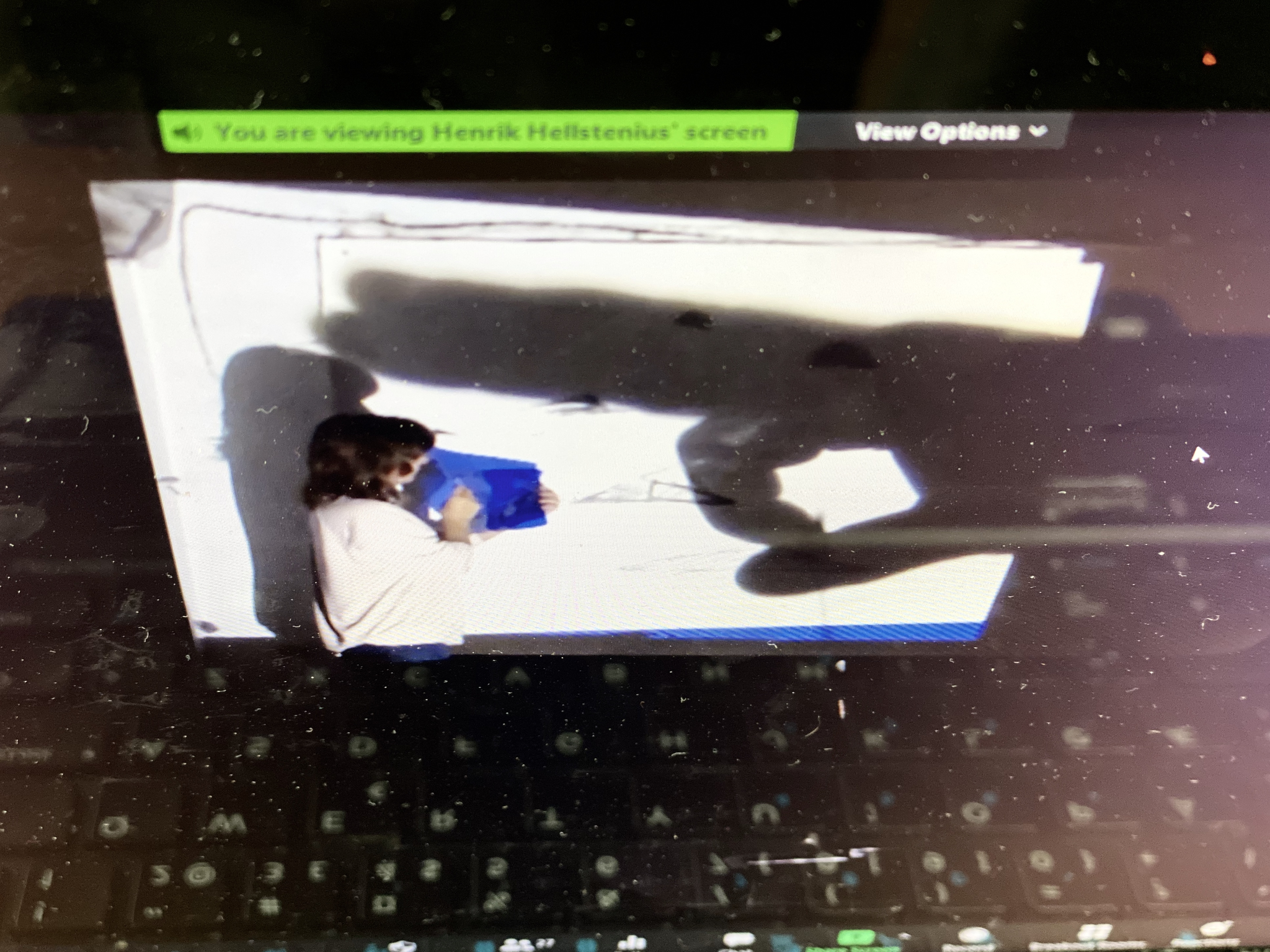As an artistic researcher, you have an independent responsibility to identify ethical issues and engage in your research with integrity. The question of ethics constitutes a huge field in academic research as well as in artistic practices. As an artistic researcher one must consider the ethical question from this multifaceted position. However it is important to not only think of ethics as something limiting and offering restrictions on the artistic research. When working with an artistic research project the question of ethics should rather be considered as a productive inquiry enabling an opening up of and diving deeper into the relations between subject matter, materials, collaborators, guests, histories and possible futures.
Is it (un)ethical? Is it (il)legal?
It is important to distinct early on between the notions of what is (un)ethical and what is (il)legal. There are certain juridical matters that needs to be in order; this pertains to issues like copyrights, privacy rights, plagiarism, juridical illegal activities, etc. While it's crucial to ensure that your research complies with legal standards, it's equally important to recognise that legality does not always equate to ethicality. For more information on legal requirements, check out the dive deeper resources and your institution's own resources.
Ethical perspectives
At the research school, we emphasise identifying and reflecting on ethical issues within the ongoing PhD projects. Reflecting on and discussing ethics in artistic research can also be beneficial in advancing your process. In this way the engagement with ethical issues in one's artistic practice and research is considered an opening up onto new perspectives for the research project.
The occupation with these questions of ethics can take an array of directions and include many different fields of inquiry to explore and, surely at times, problems to face and address. As an example, who you choose to include and who you exclude in your artistic research can foster ethical questions. Sometimes leaving an ethical concern out of a project can be more problematic than addressing it and confronting the politics/sentiments/materialities it may evoke. In this sense the non-present can speak as loud, in its negative space of omittedness, as that which is directly presented. Thus, sometimes it is can be an (un)ethical act to not confront an ethical concern, be it a marginalised position, an uncontested state of consensus or a stating of the obvious.
Of course, a project can not always include explorations down all the ethical pathways that a subject matter or a certain artistic practice prompts. It can be a good idea to identify and map out the ethical implications of one’s project from the outset and make a conscious and informed choice on what ethical implications are the most crucial for the project to address in depth. As an artistic research projects develops it can prove valuable to revisit this mapping of ethical implications, since new ethical questions can arise as the project unfolds into new areas, relations, collaborations and concerns.
→ Dive deeper: (Optional) Conquergood, D. (1985): Performing as a Moral Act - Ethical Dimensions of the Ethnography of Performance. Literature in Performance, 5(2), 1–13. https://doi.org/10.1080/10462938509391578.
Guidelines for Ethics in Artistic Research
In spring 2025, a working group appointed by the Norwegian Association of Higher Education Institutions' strategic unit for Art, Design, and Architecture, UHR-KDA, developed a guide for ethics in artistic research.
The guide is aimed at professionals engaged in artistic research at universities and university colleges. The guide aims to ensure that professionals take responsibility for those affected by artistic reseach – colleagues, audiences, and other people, as well as the environment and society at large. At the same time, the guide supports the role of art in fulfilling its function in society:
“The guide is not a simple set of rules but provides perspectives and encourages awareness and reflection on how artistic research is planned, carried out, and communicated. In these processes, many considerations must be seen in context and balanced. This can include considerations for those affected and surroundings as well as the need to ensure freedom of expression and the free and critical position of art in society. Consideration for nature and the environment must be assessed. This involves a reflective approach to one's own motivations, where human considerations and needs are not always guiding. It is also relevant to reflect on the fact that ethics in this context operates within a Western epistemological paradigm”.
Further the guide states:
“Thinking about ethics in artistic research is evolving and developing. This guide is not fully comprehensive and should be revised and updated regularly as the field progresses. Individuals engaged in artistic research must reflect on ethics in their own work and contribute to the further development of the understanding of ethics in artistic research”.
Read Ethics in artistic research - a guide (in English) or Etikk i kunstnerisk utviklingsarbeid - en veileder (in Norwegian).
You must also be aware that your institution might have their own guidelines for ethics in artistic research. You should be in dialogue with your institution to find out what the guidelines are and what kind of resources and supervision the institution can offer you.
→ Dive deeper: (Optional) Beshty, W. (2015): Introduction: Toward an Aesthetics of Ethics. Ethics, Documents of Contemporary Art (Cambridge, MA and London: MIT Press and Whitechapel Gallery)
→ Dive deeper: (Project Example, optional) A Few Notes on Getting Lost (Once Again), Michelle Teran, VIS - Nordic Journal for Artistic Research, 1 (2019).
From the abstract:
"This essay is about risk in artistic research. It is about obstacles and turning points; a shift away from the familiar and move towards an unfamiliar terrain. It begins on a boat, heading to the North of Norway, in the darkness. December 2012 is when I turn away from a media art practice and move towards a more socially-engaged, activist way of working. I depart from Bergen; eventually arriving in Madrid, in the middle of an eviction crisis. Along the journey, I will invite various people to think with me, which takes the work in unplanned and unintended directions. I understand risk in the sense of ‘staying with the trouble’ (Haraway) until it becomes quite clear what is at stake. It is the risk we will take in finding meaning, by trying to locate the means to exist in and act on the present."
→ Dive deeper: (Project Example, optional) EXTENDED COMPOSITION, Henrik Hellstenius, Ellen Kristine Ugelvik, Tanja Orning, Camilla Eeg-Tverbakk, Christian Blom. Norwegian Academy of Music (2023).
From the abstract:
"In the sphere of contemporary composition and performance, the material for composers and musicians is not only sound, but extends to different forms of visuality, objects, movements and language. The Extended Composition project poses some fundamental questions: what new strategies for composition and performance will have to be developed to master the multitude of sign systems emergent from music’s expanded material array? What new significance is emerging from the layers in an extended composition of sound, language and movements, and how do we evaluate it"
→ Dive deeper: (Project Example, optional) Reading out loud, Juliane Zelwies. Faculty of Fine Art, Music and Design, University of Bergen (2023).
From the abstract:
"With the research project Reading out loud I tried to draw attention to a specific blind spot. There is a strong tradition in the visual arts of introspection, critique and performative behaviour.
While hierarchies, dependencies and structures of the institutional apparatus (often represented as The Museum or The Gallery) have been frequently critiqued and examined by visual artists as part of their practice, artists seldom turn their gaze on themselves as propagators and contributors of cultural traditions within the increasingly globalised art world(s).
During my research, I have explored and developed approaches to describe, analyse and understand the artist ́s habitus (i.e. beliefs, codes and behaviour) that I and my colleagues express in professional and informal settings. In particular I have been interested in examining situations in which artists seem to violate unwritten rules or conventions and their peers ́ response to such violations."
→ Dive deeper: (Optional) Livepodd: Sámi ritmmat / Samiske rytmer: Etikk i møte mellom tradisjonskultur og samtidskunst (English transcription will be published).
→ Dive deeper: (Optional) ARA Podcast: Sela Adjei - the power of authentically African artistic research
→ Dive deeper: (Optional) ARA Podcast: Jayne Batzofin & RETAGS - the challenges of archiving performance-as-research
→ Dive deeper: (Project Example, optional) Imagining Liberation, Dalia AlKury. Visual Arts at the Norwegian Film School, Inland Norway University of Applied Sciences (2024)
Dalia AlKury is an acclaimed film director working with cross-genre storytelling that explore aspects of resilience in the Arab World and the political unconscious of the everyday hero in this region. With the artistic research project Imagining Liberation AlKury sets out to investigate methods in speculative nonfiction and what "kind of cinematic images can arise from imagining a liberated Palestine?" Steming from a deep frustration with the lack of art imagining a world she hopes possible AlKury brings together staged simulated pasts with speculative futures to offer other possible worlds or narratives.
The abstract highlights the ethical implication of her work:
"Her final artistic results are informed by a long legacy of politically poetic Palestinian aesthetics and by grievances over the historical and present day witnessing of the violent ethnic cleansing of her people. By committing to framing her vignettes in a fictional liberated Palestine, an emancipatory art making process starts to take shape. The process excavates an often-oppressed critical rage and pushes it up to the surface through different narrative tools. Imagining Liberation traces the filmmaker’s confrontational journey while experimenting with staging, subverting, futuring, abstracting, and decolonizing to reach a type of catharsis in the face of a continuously fragmented diasporic existence. By staging her own return to a liberated Palestine in different modes from writing to filming, Dalia runs into ethical dilemmas questioning her self-censorship, representation of “others” and the elusive role of cinematic catharsis. By staging her own return to a liberated Palestine in different modes from writing to filming, Dalia runs into ethical dilemmas questioning her self-censorship, representation of “others” and the elusive role of cinematic catharsis."
In her reflections, Dalia AlKury elaborates on the ethical dimensions of her methods:
"As a director, my role is not to give [the film character or film subject] agency over the film, but to instigate a cooperative agency for them and me over the way in which we choose to tell their stories. This complicated relationship is laden with power dynamics. I try to navigate this ethically challenging terrain of agency as an interactive dynamic process. Agency resides in this building of trust between myself and the subjects and the story we want to tell together. The more trust and agency I give my subjects, the more of these they give back to me. It is a delicate process, and when working with the pain of others, a filmmaker must be conscious and sensitive, always checking in with their subjects. The building of trust and friendship is a primary reason why I find meaning in my work." (2024, p.23)
And:
"I regularly confront this ethical question — ”for us or for them?” — in my practice, and it arose in many guises in my research as I dealt with my agency and entitlement in narrating a grand collective grief" (2014, p.29)
→ Dive deeper (optional): `Advancing Supervision for Artistic Research Doctorates
A number of tools and resources have been developed to support supervisors in artistic research through this international collaboration project. The tools and resources are relevant also for research fellows, aslo when it comes to ethics. The project´s web page contains an easy to navigate overview of the output.
→ Dive deeper (optional): General Data Protection Regulation
General Data Protection Regulation (GDPR) is a privacy and security law. It was drafted and passed by the European Union (EU), but it imposes obligations onto organizations anywhere, as long as they target or collect data related to people in the EU (including Norway). The regulation was put into effect on May 25, 2018. This law might influence your research project, for example, if you are planning to record someone's voice. Learn more about personal data.
→ Dive deeper (optional): The European Code of Conduct for Research Integrity
The European Code of Conduct for Research Integrity is a common framework for all fields of research, produced by ALLEA - All European Academies. The framework was last revised in 2017 and is available in more than twenty languages.
→ Dive deeper (optional): The Act on ethics and integrity in research
The purpose of the Act on ethics and integrity in research is to ensure that public and private research is conducted in accordance with recognised norms of research ethics. The law is in Norwegian, and is called Forskningsetikkloven for short.
→ Dive deeper (optional): The Norwegian National Research Ethics Committees
The Norwegian National Research Ethics Committees are independent agencies for questions regarding research ethics, and investigation of misconduct, within all subject areas. The committees' shared secretariat is based in Oslo. There is no separate commitee for artistic research. See also the National Research Ethics Committees' guide for research performing organisations. The guide is available aslo in Norwegian.
An artistic research project is seldom a solitary endeavour. Most often many different actors are invited into a project, or work together to shape the final artistic result or the subject matter of the research. An artistic research project is thus usually realised within a network of relations. Managing these relations, accounting for them and importantly creditting them correctly, is therefore also a very important task for the artistic researcher. The relations that are built up during a research process may vary significantly in regards to the intensity and exchange rate of these relations, but all relations are worth considering and acknowledging in a research process. With this in mind it is also important to assess and identify the quality of the different relations within a project. Some may be hired professionals others might be co-researchers much more entangled and imbedded in the project, it’s results and the knowledge it sets out to share. Different relations should of course be handled accordingly to the role they have played within the research project.
Expanding relations
Engaging with Artistic Research offers a unique opportunity to expand one’s field and experiment with and experience new methods and frameworks for one’s artistic practice. One way of really enabling this development is to bring in new materials and media or to engage research collaborators. When approaching new thematic fields or artistic methods one most often rely on the input of others outside one’s common artistic practice. These new relations is surely something one must account for, but it is also a most rewarding and reinvigorating attribution to one’s artistic practice and an artistic research project. New relations are forged on many different levels and in various modes of intensity and essence to the project. Once an artistic researcher starts identifying and mapping out the various relations the scope of these will most often be surprising. In an artistic practice we are always already embedded in an intricate network of relations, sometimes without always giving it that much thought.
Identifying relations
It may seem redundant or basic to list the many relations within one’s artistic practice, but it can actually be quite rewarding to do the work and methodically recount or identify the relations that the artistic practice and the current research practise involve. Some of these relations can be long-established and ingrained into one’s artistic processes and methods, others can be newly tied relations or relations appearing on the horizon. Once one begins listing and sub-listing the network of relations will undoubtedly unfold into a many-layered meshwork.
Relations can take a variety of forms from very practical relations to cross-disciplinary collaborations or inspirational sources:
Site of exposition
As an artistic researcher one most inevitably present the finished result of one’s research project in one way or another. The site for this presentation is an important relation for the project. Be it a music venue, a digital site, a stage, a festival, an art space or a publisher, the relationship between the artist and the “site of exposition” is a relation that requires careful attention and negotiation.
Tools
The tools that an artist or the research project makes use of also constitutes relations in themselves. Arguably, an artist might even have quite an outspoken and developed relationship to the tools that she engages with. The relations to the working tools of the practicing artist is something that often is forgotten, perhaps since it is taken for granted, in the reflection component of an artistic research project, but this relation might actually be crucial to understanding the scope and depth of the research work.
Audience
A quite important role for many artistic results are played by an audience. The way that a project is communicated and performed to an audience plays a major part in most artistic research expositions. The audience does not play a neutral role here and the relation between work and it’s receiver must be considered, challenged and accounted for. Furthermore, the role of the audience also offers certain questions in regards to the ethical negotiations of a project's relations.
Contributors and collaborators
Many artistic research projects involve different contributors and collaborators both in the production of the artistic result, the different research phases and the development of the reflection component. The role of contributors and collaborators will most often differ from relation to relation and must hence be handled accordingly. Some collaborators may have co-authorship, others may simply be credited correctly for their contributions. Be it improvised music or dance performances, workshop based film productions, collective text writing, live happenings or community based architecture projects, the question of authorship is something that needs to be considered and negotiated. These forms of collaborations are in general a very welcome possibility for a project to expand and should not be discouraged, but the relations involved should of course be handled openly and with care.
Cross-disciplinary
When an artistic research project involves cross-disciplinary processes and/or collaborations, it is important to note that different fields may offer different frameworks for the way relations are handled. Something that might have less importance relationwise in one field may be substantial and decisive in another. The researcher must be open and alert to the different ways that relations are treated and dealt with, in the new fields the researcher crosses over into.
Context and sources
Even if a research project does not seem directly to involve other contributors or collaborators, the project will still inevitably have a meshwork of relations flowing through it. First of all a project is always inescapably imbedded in a context and the projects relation to this context, be it political, environmental, social or theoretical, is a crucial component in the situating and contextualisation of the project. As one starts examining the framework of the context, a myriad of attributes surfaces. For instance, numerous relations lies in the support structures around a given context, the history of a site or a source, the socio-political dynamics of a field, structural regimes of aesthetics or ideas or the way in which an artistic gesture always stands on the shoulders of artistic gestures that came before it. One can also say that the outside sources that are brought into a research project is a form of relational work. How are one treating the knowledge and ideas of others? In what light is one presenting other’s ideas and thoughts? What specific voices are brought together, compared, juxtaposed or set against each other? As we bring different voices or expressions into the same room, we are immediately suggesting a relation.
Mapping-out relations
It can be a good idea to map-out the relations in one’s artistic research project from the very beginning. As the map gradually takes form, more detailed point will most likely appear. And from these more nuanced outlines of relations, new, yet unidentified, relations will probably come into mind. The map will in this way grow and give a fuller picture of the network of relations flowing through the project. From this map it can perhaps also be more manageable to get a overview of the different relations and there qualitative roles in the project. This map should of course be in development and be revisited throughout the entire artistic research process, since relations shape and reshape as the project develops.
Credits
As in any other artistic production it is needless to say important to credit contributors, collaborators and professionals involved with the project. Keeping track of the many relations that are forged and evolve throughout such a lengthy research process is also a good way to remember all the people deserving credits. Some of these actors may have contributed very early on in the process, to parts of the project that may, in the final phases, feel bygone and irrelevant. In the Reflection Component the role of crediting is also important in relation to the treatment of sources, copyrights and Intellectual Property.
Relational ethics, ethical relations
The work with identifying and handling relations within a research project is closely linked to considerations on research ethics. One can here consider the ethics of relations; relational hierarchies, questions of accessibility, problematics of participation, rights to knowledge, representation, authorship, linkability. One can also reverse the concept and consider the notion of relational ethics; commonality, sharing, giving voice to, listening, co-creation, creative commons, open source, activism. The ethical aspects of relations are myriad and often many-faceted. A good idea can be to map-out one’s relations in tandem with mapping-out the ethical implications of one’s project. The two issues will most often reflect, feed and branch off one another, allowing for a rich network of relations and ethical regions to unfold.
